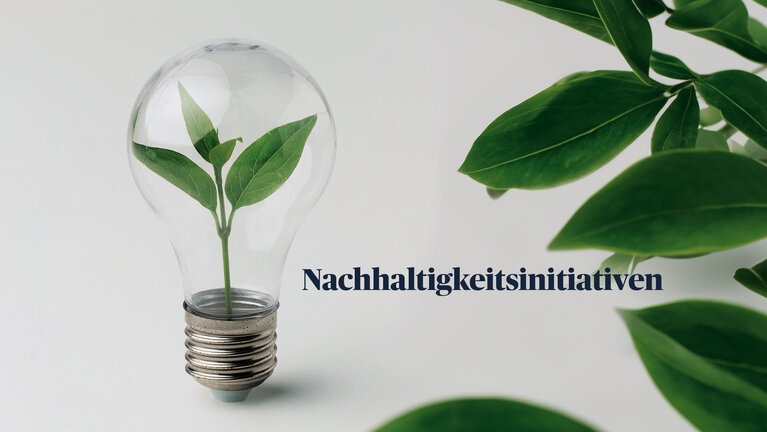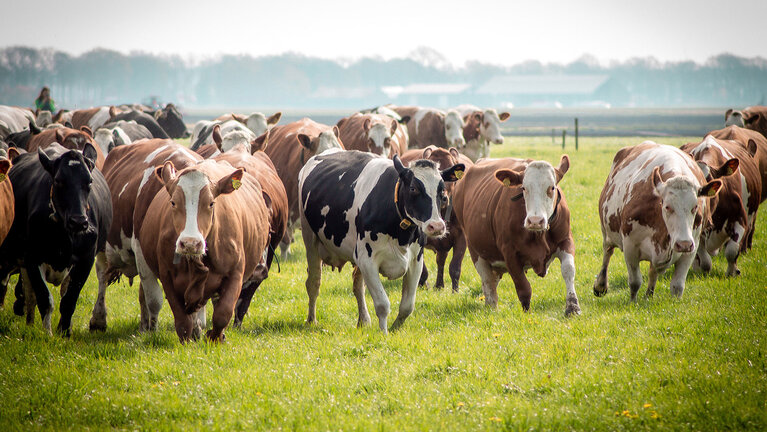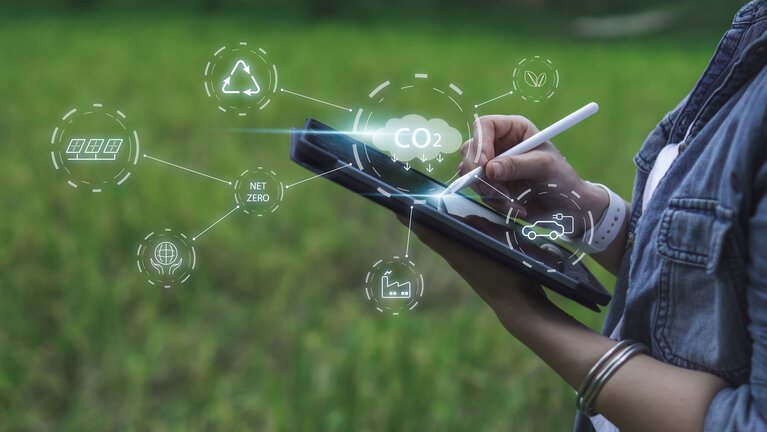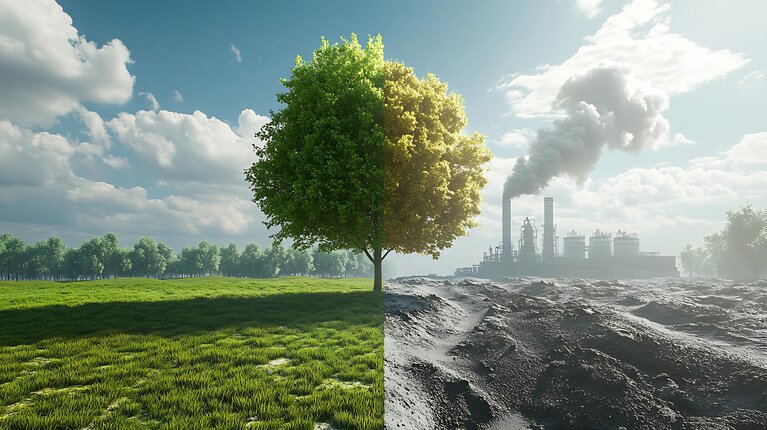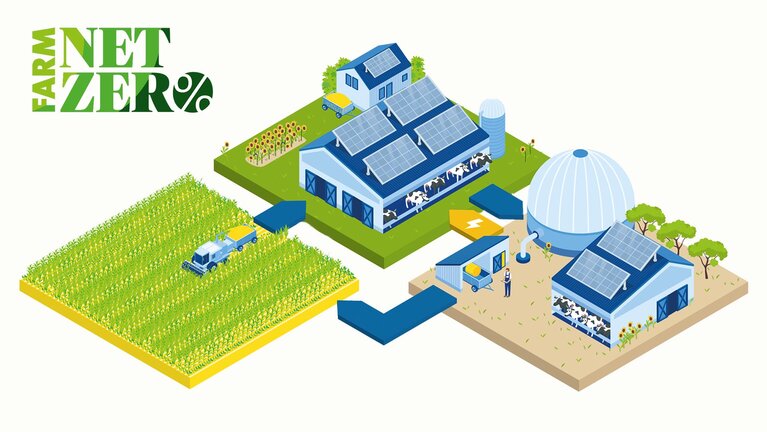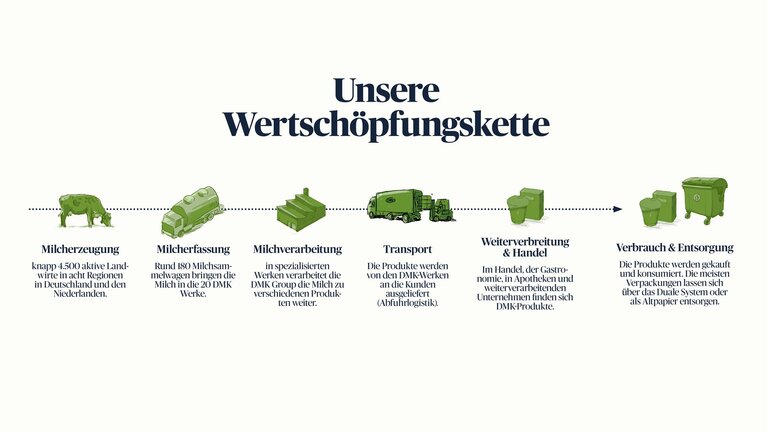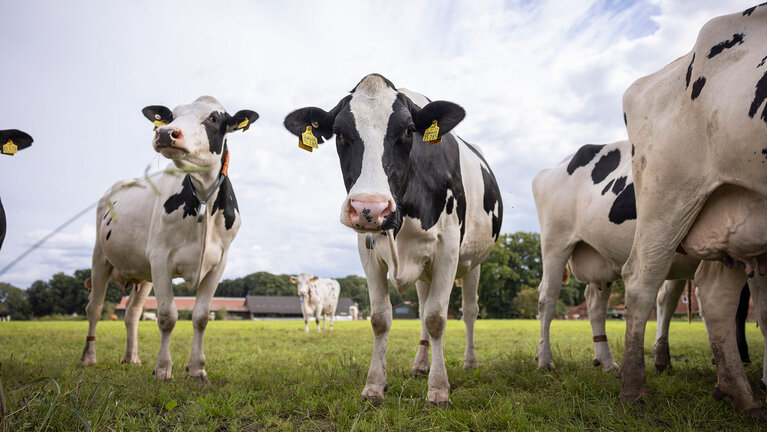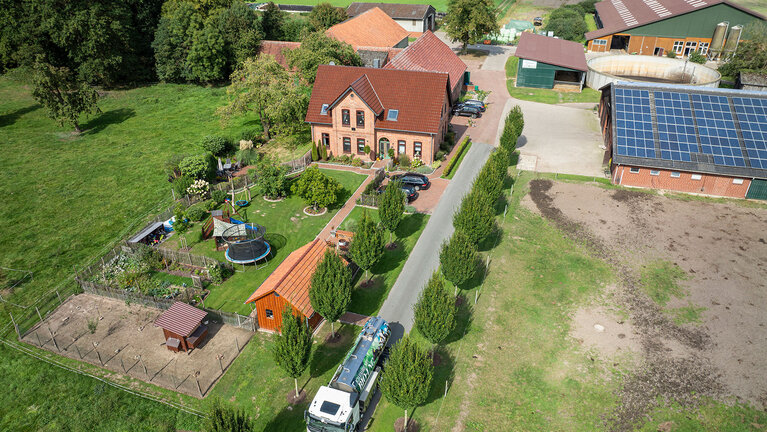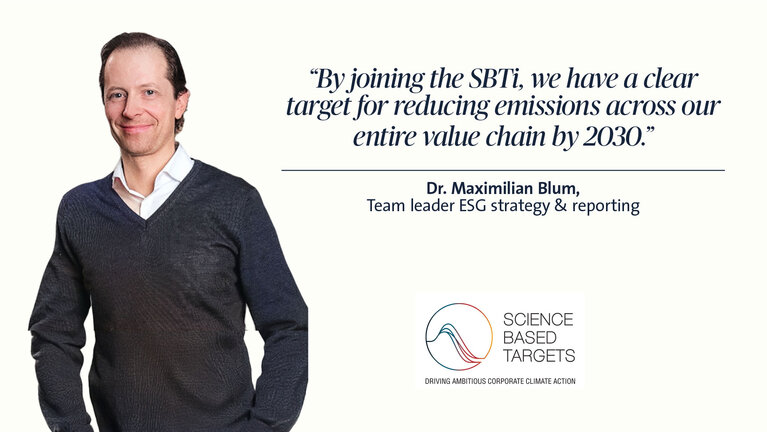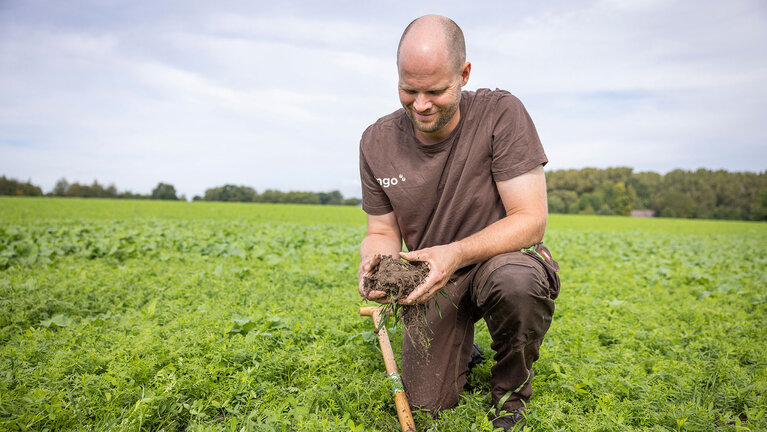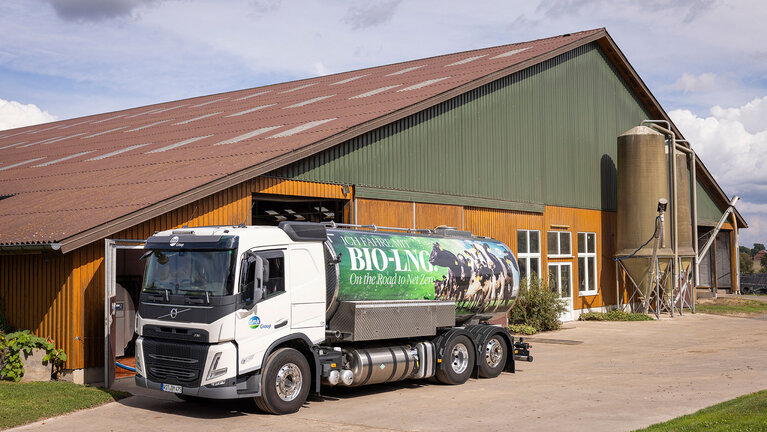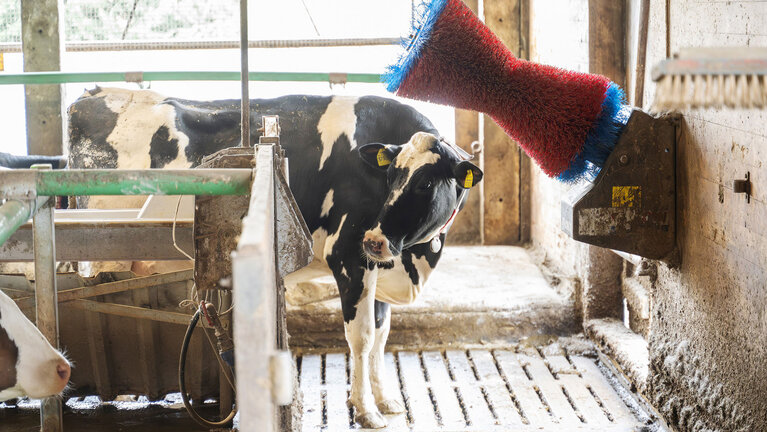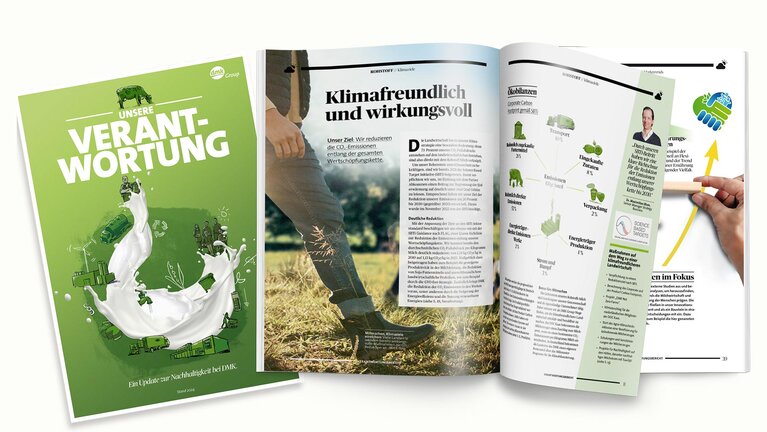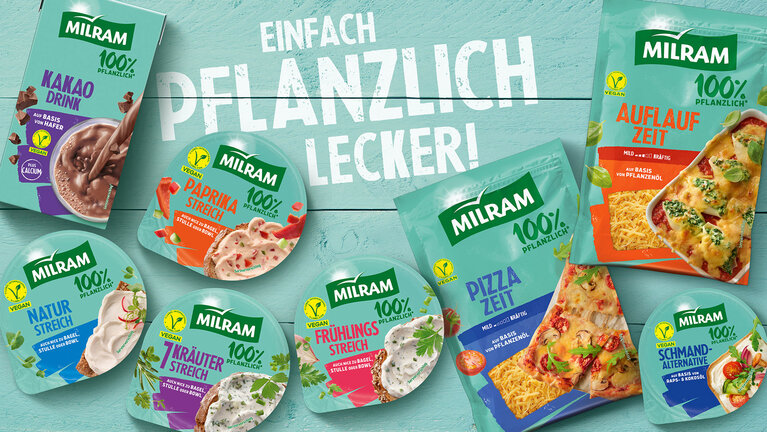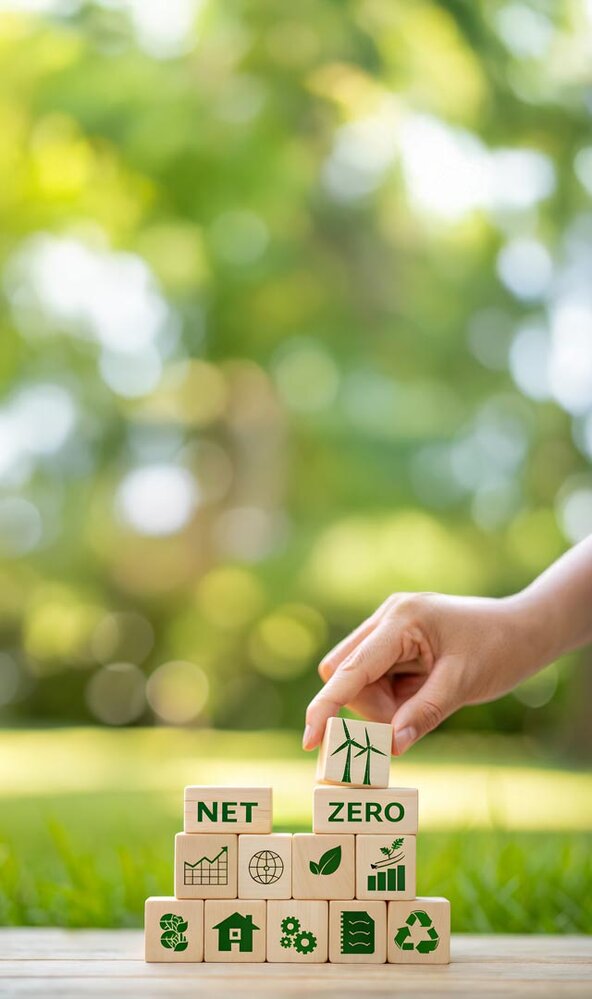
Climate change is currently competing with many major crises and conflicts on the world stage. Increasing global warming, with its periods of drought and heavy rainfall, poses massive risks to agriculture. This makes it all the more important for the DMK Group, as Europe's leading dairy cooperative, to send out a clear signal.
As an agricultural company, DMK is aware that dairy products cause emissions.With this in mind, DMK, as Germany's largest dairy cooperative, feels it has a responsibility.Ultimately, it is also about the credibility of an entire industry that is currently undergoing one of the biggest transformation processes in its history.
In the DMK Group, milk production accounts for 73% of the company's total carbon footprint. At the same time, the company has already made significant progress in driving this change - from expanding its portfolio to include vegan products, reducing packaging waste and eliminating food waste, to major energy and water efficiency projects at its factories, switching to climate-friendly bio-LNG to fuel milk collection trucks, and researching and testing climate change measures at net-zero farm pilot projects. These farms are implementing emission reduction concepts so that the lessons learned can be transferred to all DMK farms in the future. With projects like these, DMK aims to make a significant contribution to reducing emissions and ensuring the future viability of the industry.
Change based on science
That is why DMK has set up the “Climate Think Tank” to advise and support projects, bringing together experts from science and practice as well as customers. The Thünen Institute of Farm Economics, the Leibniz Institute for Agricultural Engineering and Bioeconomy, the plant breeding company KWS, the partner for the digitalisation of milk production FarmCHAMPs, the animal nutrition specialist Josera, the agricultural trading company AGRAVIS and the management consultancy Gottwald&Klepsch all provide expert advice. They are all working on the question of how farms can become net-zero through site-specific options. Measures such as the use of feed additives to reduce methane, humus storage in the soil and the cultivation of indigenous protein crops are being tested on the four DMK pilot farms.
The transition will not happen overnight
However, agriculture is not like any other industry. In Germany, there are around 170,000 farms that need to be involved in the transition. This is particularly important because emissions do not just come “out of the chimney”, but are largely part of the circular economy, i.e. they come from cows. Moreover, consumers are still very interested in animal products. This will not change overnight. In addition, the serious efforts of farmers and processors in the agricultural sector are being undermined at ever shorter intervals by new misleading stories and disinformation. However, official figures from the Federal Environment Agency show that emissions from agriculture in Germany are falling steadily. Between 1990 and 2022, annual greenhouse gas emissions fell from 71.6 to 52.2 million tonnes. Over the same period, methane emissions were reduced by around 27%. The agricultural sector as a whole has exceeded the 2023 climate targets.
In Germany, processing companies and agricultural businesses are often further ahead than many people think: Data collection and analysis systems have been developed and implemented, and the CO2 footprint of a dairy cow in Germany and Europe is half the global average. This is due to the traditionally high proportion of grassland, the high milk yield per dairy cow and the continuous development of demand-driven feeding, housing systems and downstream processes.
3 questions for Dr Maximilian Blum, Team Leader ESG Strategy & Reporting
Why is climate protection non-negotiable for DMK?
Few industries are as dependent on the weather as agriculture. Even a short, violent storm or a frosty night in spring can spell disaster. This makes it all the more important for us, as a farmer-owned cooperative, to be part of the solution and actively contribute to climate protection and emissions reduction. There is no doubt about the need and urgency of these measures. Accordingly, we want to contribute to limiting global warming to 1.5°C, in line with the Paris Agreement and with ambitious targets. In this way, we can actively contribute to the long-term prevention of heat stress in animals and the associated increased risk of animal diseases, thereby minimising risks for the dairy industry.
How does this work in practice?
DMK has been working intensively on climate protection since 2012. On average, all DMK supplied farms already had a low carbon footprint for the industry. Further reductions from an already low baseline are challenging, but we believe it is the right way to go. To achieve this, we are testing a range of measures on our net-zero farms to see how we can further reduce CO2 emissions in a sustainable way. We are working with our customers to roll out these measures on a wider scale, with the aim of sharing the costs in the interests of climate protection.
In 2022, DMK's emissions were still 10.9 million tonnes of CO2e. The average CO2 emissions of all supplying farms were 1.16 kg CO2e per kg of raw milk – a low footprint for the industry. Further reductions from this already low baseline are challenging, but DMK is convinced that this is the right path to take.
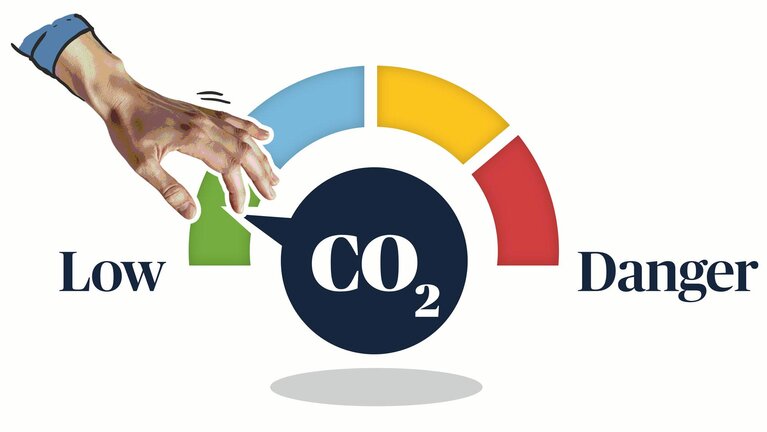
In line with the Paris Climate Agreement, DMK is actively contributing to limiting global warming to 1.5 degrees. This is also demonstrated by our accession to the Science Based Target Initiative (SBTi) in June 2022, making DMK one of the first German dairies to commit to the climate targets of this global initiative. DMK's climate roadmap reaffirms these targets.
